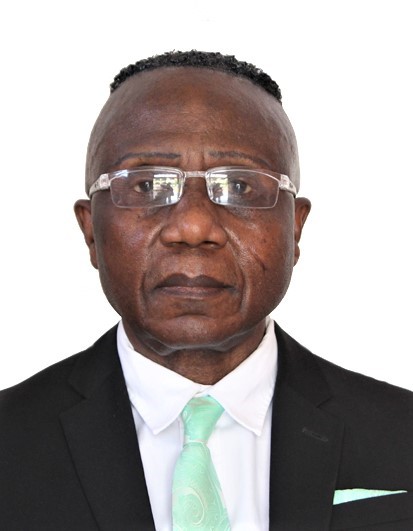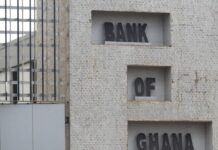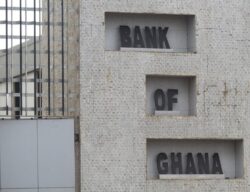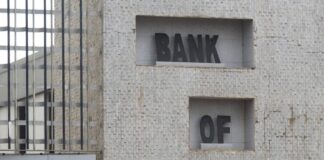Economist Dr. John Kwakye has urged political actors to own both the successes and failures of their policies and ensuing implementation, saying avoiding the responsibility for negative outcomes while claiming credit for the goodwill perpetuate the two-term cycle and truncate any meaningful attempts at long-term economic transformation.
He said this in response to a recent lecture by Vice President Dr. Mahamudu Bawumia, who is presidential candidate of the ruling New Patriotic Party (NPP) in this year’s elections. At the said lecture, the Vice President appeared to exonerate himself from some controversial government policies, such as the e-levy and taxes on betting, among others.
However, Mr. Kwakye advised politicians, particularly those within the two major parties’ ranks – NPP and NDC, to adopt best practices from the most advanced economies.
“Both the NPP and NDC must learn to not only take credit for good performance of the economy but also to take blame for poor performance, during their tenure. That is what governments in matured economies such as the US, UK, France and Germany do. It is how you respond to the prevailing situations that you will be judged by,” Dr. Kwakye said.
He said both major parties should focus on outlining specific plans for the future, rather than engaging in futile blame-games ahead of the 2024 elections. Dr. Kwakye, who has experience at the International Monetary Fund (IMF) and Bank of Ghana, said Ghanaians deserve to know what each party will do differently if elected. He argued that blaming each other is unproductive and will not help the country move forward.
“Instead of engaging in blame-games, they must admit their mistakes and tell Ghanaians what they are going to do differently. That is the surest way for them to break the eight-year electoral cycle,” he remarked.
At the lecture, dubbed ‘Ghana’s Next Chapter; Selfless Leadership and Bold Solutions for the Future’, Vice President Dr. Bawumia – who doubles as flagbearer for the NPP – sought to provide a defence for his contribution to the current administration’s fortunes while outlining his plans for the future if elected as Ghana’s president.
Dr. Bawumia touted the economy’s pre-pandemic performance, with key macroeconomic indicators trending positively during 2017-19, through policies like implementing the Fiscal Responsibility Act and external factors like increased oil output, while stable global economic conditions also played a role.
The former central bank Deputy Governor however failed to address key domestic policy shortcomings – such as relatively excessive spending on flagship programmes, a mammoth-sized government, a failure to boost revenue from traditional sources, and heavy borrowing from international markets despite rising public debt levels. Dr. Bawumia’s decision not to acknowledge these in his speech left Dr. Kwakye unimpressed.
“It is important that as government takes credit for the good economic performance during 2017-19, it must also be prepared to accept some responsibility for the poor performance during 2020-22. The apparent suggestion that government did nothing wrong during 2020-22 can be interpreted as trying to sweep policy failings under the carpet,” he pointed out.
Dr. Kwakye – who doubles as Director of Research at the Institute of Economic Affairs (IEA) – was similarly critical of the Vice President defending the Bank of Ghana’s decision to fund the fiscal deficit, particularly in 2022. While acknowledging the necessity for the BoG’s intervention during a period when the nation faced challenges in accessing international capital markets, Dr. Kwakye expressed alarm over the magnitude of the monetary advance – which amounted to over 50 percent of the previous year’s revenue.
He highlighted the resulting inflationary pressures and substantial losses incurred by the central bank, cautioning against downplaying these as mere technicalities.
In 2022, inflation peaked at 54.1 percent before falling back to 30 percent in December 2022; at the time, the central bank made a loss of GH¢61billion and a record negative equity of GH¢54billion.
Regarding the NPP flagbearer’s contributions to the digitisation agenda, Dr. Kwakye acknowledged the strides made – but also stressed the need to recognise digitisation’s limitations in singularly driving economic transformation. He emphasised the importance of tangible factors like infrastructure and human capital, which also require attention.
Furthermore, Dr. Kwakye questioned the Vice President’s stance on taxation; noting discrepancies between promises made and policies implemented, such as the introduction of multiple taxes despite earlier pledges to shift focus from taxation to production. He underscored the importance of simplifying the tax system to increase revenue without burdening taxpayers.
Additionally, he welcomed Dr. Bawumia’s focus on tackling the high cost of living and promoting a ‘golden age’ of natural resource management, but also called for practical steps to ensure the country maximises benefits from its abundant resources.
“We have consistently lamented over the nature of our natural resource fiscal regimes that cede resource fields to foreign companies on concession basis, and allow them to keep the bulk of products while we receive paltry amounts largely in the form of royalties and taxes. Dr. Bawumia stated that large gold belts exist in Ghana with over five billion ounces valued at over US$10trillion. If gold deposits alone account for this amount, one can imagine the total amount derivable from all of our resources. We support the policy of taking ownership of our natural resources and maximising our benefits from them,” Dr. Kwakye concluded.










